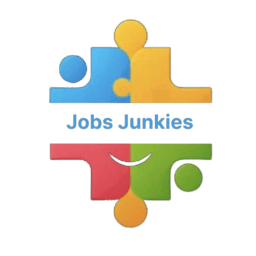Continuous learning is essential for career success in today’s fast-paced and ever-evolving job market. Embracing lifelong learning can significantly enhance your skills, adaptability, and professional growth. Here’s why continuous learning is crucial for achieving career success:
1. Keeps Skills Relevant
- Evolving Job Requirements: Industries are constantly changing due to technological advancements, market demands, and global trends. Continuous learning helps you stay up-to-date with the latest tools, technologies, and practices in your field.
- Adapting to Change: Regularly updating your skills ensures that you remain competitive and can adapt to new challenges and opportunities.
2. Enhances Career Advancement Opportunities
- Promotions and Raises: Demonstrating a commitment to learning can make you a more attractive candidate for promotions and salary increases. Employers value employees who are proactive about their professional development.
- Expanding Your Role: Gaining new skills can qualify you for additional responsibilities, enabling you to take on more significant roles within your organization.
3. Fosters Innovation and Creativity
- New Perspectives: Exposure to new ideas and concepts through continuous learning can enhance your problem-solving skills and inspire creativity in your work.
- Innovative Thinking: Staying informed about industry trends and advancements can help you identify opportunities for innovation within your organization, positioning you as a thought leader.
4. Builds Confidence
- Skill Mastery: As you acquire new knowledge and skills, your confidence in your abilities increases. This self-assurance can positively impact your performance and interactions with colleagues.
- Overcoming Challenges: Continuous learning equips you with the tools to tackle new challenges, allowing you to approach tasks with greater confidence and competence.
5. Expands Your Professional Network
- Learning Communities: Engaging in learning opportunities often leads to interactions with like-minded professionals. This can help you expand your network, create valuable connections, and discover new opportunities.
- Mentorship Opportunities: Continuous learning can introduce you to mentors or industry experts who can guide you in your career journey.
6. Improves Job Satisfaction
- Engagement: Learning new skills and knowledge can keep your work interesting and engaging, reducing the risk of burnout and monotony.
- Fulfillment: Achieving personal and professional growth through learning can lead to greater job satisfaction and a sense of accomplishment.
7. Facilitates Career Transitions
- Skill Transferability: If you’re considering a career change, continuous learning allows you to acquire the necessary skills for your new role, making the transition smoother.
- Broader Knowledge Base: A commitment to learning can provide you with a broader understanding of different industries and roles, making you a more versatile candidate.
8. Prepares You for Leadership Roles
- Leadership Skills: Continuous learning often includes developing soft skills such as communication, teamwork, and emotional intelligence, which are essential for effective leadership.
- Vision and Strategy: Staying informed about industry trends and best practices equips you to make strategic decisions and inspire others as a leader.
9. Promotes a Growth Mindset
- Embracing Challenges: A commitment to continuous learning fosters a growth mindset, encouraging you to view challenges as opportunities for development rather than obstacles.
- Lifelong Learner: Adopting a mindset focused on growth and learning can enhance your resilience and adaptability, enabling you to thrive in a dynamic work environment.
10. Contributes to Overall Well-Being
- Mental Stimulation: Engaging in continuous learning keeps your mind active and sharp, contributing to cognitive health and overall well-being.
- Personal Fulfillment: Learning new things can lead to personal growth and fulfillment, enriching your life both professionally and personally.
Conclusion
Continuous learning is vital for career success in an ever-changing job market. By committing to lifelong learning, you can stay relevant, enhance your skills, and unlock new opportunities for advancement. Embrace the mindset of a lifelong learner to navigate your career path effectively and achieve your professional goals.
